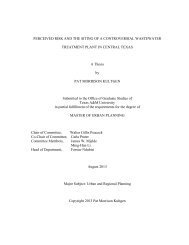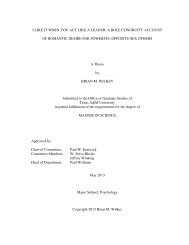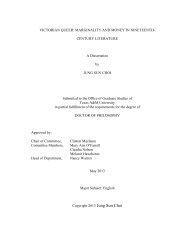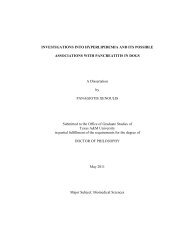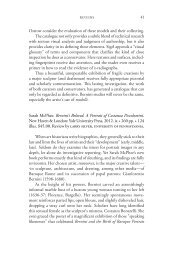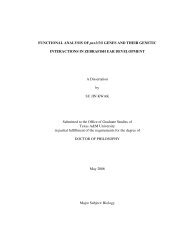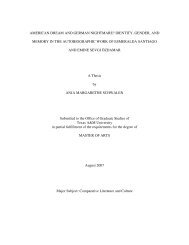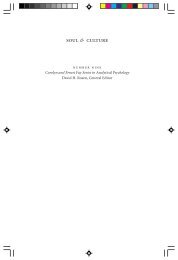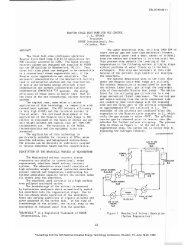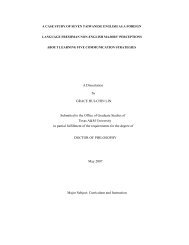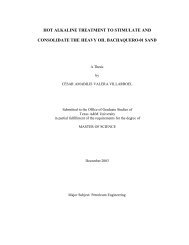THE EFFECT OF ETHICAL SIGNALS ON RECRUITMENT ...
THE EFFECT OF ETHICAL SIGNALS ON RECRUITMENT ...
THE EFFECT OF ETHICAL SIGNALS ON RECRUITMENT ...
You also want an ePaper? Increase the reach of your titles
YUMPU automatically turns print PDFs into web optimized ePapers that Google loves.
consequence will occur to each stakeholder group,” 3). “the desirability or undesirability<br />
of each consequence,” and 4). “the importance of each stakeholder group” (Hunt &<br />
Vitell, 1986, p. 9). Of course, the identification and importance of the stakeholders will<br />
change across situations and individuals (Hunt & Hansen, 2007).<br />
Utilitarianism is one school of thought derived from the teleological perspective.<br />
Under utilitarianism, “the act is ethical only if the sum total of utilities produced by the<br />
act is greater than the sum total of utilities produced by any other act” (Ferrell &<br />
Gresham, 1985, p. 89). An act is therefore unethical if it “leads to an inefficient use of<br />
resources” or to “personal gain at the expense of society in general” (Ferrell & Gresham,<br />
1985, p. 89). Utilitarianism is often summed up by “the greatest good for the greatest<br />
number” (Hunt & Vitell, 1986, p. 7). There are several problems with utilitarianism and<br />
teleological evaluations in general including determining whose good should be<br />
maximized and measuring the potential positive or negative outcomes of decisions (Hunt<br />
& Vitell, 1986). Thus, as noted earlier, the integration of both teleological and<br />
deontological theories of ethics is most beneficial in understanding how and why people<br />
(and organizations) make ethical decisions.<br />
A review of the deontological and teleological views reveals that there are both<br />
social and individual aspects of ethics. Both organizational norms and personal<br />
experiences influence the development of deontological norms and perceived<br />
consequences of actions (teleological evaluations) (Hunt & Vitell, 1986). The next<br />
section outlines the importance of both social and individual components in the study of<br />
ethics.<br />
7



